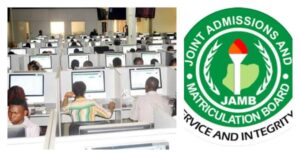If you’re preparing for the Joint Admissions and Matriculation Board (JAMB) exam, especially the Economics section, you’re likely searching for reliable resources to help you succeed. One of the most common searches is for “JAMB Economics Questions and Answers 2025/2026 Expo Runz.
” In this article, we’ll provide you with a detailed guide on what to expect, how to prepare, and why relying on “expo runz” is not the best strategy. Let’s dive in!
What is JAMB?
JAMB is the body responsible for conducting entrance examinations into Nigerian universities, polytechnics, and colleges of education. The exam tests students in four subjects, including Economics for those in the arts, social sciences, or commercial fields. Scoring high in JAMB Economics can significantly boost your overall score and increase your chances of gaining admission into your desired institution.
Why is Economics Important in JAMB?
Economics is a core subject for students pursuing courses like Accounting, Business Administration, Economics, and other related fields. It tests your understanding of basic economic principles, theories, and their applications in real-life situations. A good grasp of Economics can also help you in other areas of life, such as making informed financial decisions.
What to Expect in JAMB Economics 2025/2026
The JAMB Economics syllabus is designed to test your knowledge in the following areas:
- Basic Economic Principles
- Scarcity, choice, and opportunity cost
- Production possibility curve
- Economic systems (capitalism, socialism, mixed economy)
- Microeconomics
- Demand and supply
- Elasticity of demand and supply
- Market structures (perfect competition, monopoly, oligopoly)
- Macroeconomics
- National income
- Inflation and deflation
- Unemployment
- Fiscal and monetary policies
- International Trade
- Balance of payments
- Exchange rates
- Globalization
- Development Economics
- Economic growth and development
- Poverty and income distribution
- Sustainable development
The questions are usually a mix of theory and practical applications. You’ll encounter multiple-choice questions, and you’ll need to choose the correct option from the given choices.
How to Prepare for JAMB Economics 2025/2026
- Understand the Syllabus
The first step to acing JAMB Economics is to familiarize yourself with the syllabus. This will help you know the topics to focus on and avoid wasting time on irrelevant areas. - Use Recommended Textbooks
JAMB provides a list of recommended textbooks for Economics. Some popular ones include:- “Economics for Senior Secondary Schools” by A. O. A. Lawal
- “Comprehensive Economics for Senior Secondary Schools” by J. U. Anyaele
- Practice Past Questions
Practicing past questions is one of the most effective ways to prepare for JAMB Economics. It helps you understand the exam pattern, identify recurring questions, and improve your speed and accuracy. - Join Study Groups
Studying with peers can make learning more enjoyable and effective. You can share ideas, ask questions, and test each other’s knowledge. - Take Mock Exams
Mock exams simulate the actual JAMB exam environment. They help you manage your time, reduce exam anxiety, and identify areas where you need improvement. - Stay Updated on Current Economic Issues
JAMB often includes questions related to current economic events. Reading newspapers, watching the news, and following reputable economic blogs can keep you informed.
Why “Expo Runz” is Not the Best Option
“Expo runz” refers to leaked exam questions and answers that are circulated before or during the exam. While it may seem like a shortcut to success, relying on expo runz comes with serious risks:
- It’s Illegal
Using expo runz is a form of exam malpractice, which is punishable by law. If caught, you could be banned from taking JAMB for several years or even face legal consequences. - It’s Unreliable
Most expo runz are fake or outdated. You might end up wasting your time and money on incorrect answers. - It Undermines Your Learning
The purpose of JAMB is to test your knowledge and readiness for higher education. Relying on expo runz defeats this purpose and leaves you ill-prepared for future academic challenges. - It’s Stressful
Constantly worrying about getting caught or whether the answers are correct can cause unnecessary stress and affect your performance in other subjects.
Instead of looking for shortcuts, focus on studying hard and using legitimate resources to prepare for the exam.
Sample JAMB Economics Questions and Answers
To give you an idea of what to expect, here are some sample JAMB Economics questions and answers:
Question 1:
What is the opportunity cost of a decision?
A. The monetary cost of the decision
B. The next best alternative forgone
C. The total cost of production
D. The cost of raw materials
Answer: B. The next best alternative forgone
Question 2:
Which of the following is a characteristic of a monopoly?
A. Many sellers
B. Homogeneous products
C. Single seller
D. Free entry and exit
Answer: C. Single seller
Question 3:
What is the primary function of the Central Bank of Nigeria?
A. Printing money
B. Controlling inflation
C. Regulating commercial banks
D. All of the above
Answer: D. All of the above
Question 4:
Which of the following is a cause of inflation?
A. Increase in production
B. Decrease in money supply
C. Increase in demand for goods
D. Decrease in population
Answer: C. Increase in demand for goods
Question 5:
What is the balance of payments?
A. A record of a country’s trade in goods only
B. A record of a country’s trade in services only
C. A record of all economic transactions between a country and the rest of the world
D. A record of a country’s internal transactions
Answer: C. A record of all economic transactions between a country and the rest of the world
Tips for Answering JAMB Economics Questions
- Read the Questions Carefully
Misreading a question can lead to wrong answers. Take your time to understand what is being asked. - Eliminate Wrong Options
If you’re unsure of the correct answer, eliminate the options that are clearly wrong. This increases your chances of choosing the right one. - Manage Your Time
JAMB is a timed exam, so practice answering questions within the allotted time. Don’t spend too much time on a single question. - Stay Calm
Exam anxiety can affect your performance. Take deep breaths, stay focused, and believe in your preparation.
Conclusion
Preparing for JAMB Economics 2025/2026 requires dedication, hard work, and the right resources. While the temptation to use “expo runz” may be strong, it’s important to remember that success achieved through honest means is more rewarding and sustainable.
Use the tips and sample questions provided in this article to guide your preparation. With consistent effort and the right mindset, you can ace JAMB Economics and achieve your academic goals.
FAQs
Can I pass JAMB Economics without reading?
No, JAMB Economics requires a good understanding of economic principles and theories. Reading and practicing past questions are essential for success.
How many questions are in JAMB Economics?
JAMB Economics typically consists of 50 multiple-choice questions.
What is the best textbook for JAMB Economics?
Some recommended textbooks include “Economics for Senior Secondary Schools” by A. O. A. Lawal and “Comprehensive Economics for Senior Secondary Schools” by J. U. Anyaele.
Is it possible to get JAMB questions before the exam?
No, JAMB questions are confidential, and any claims of having them before the exam are likely scams.
How can I improve my speed in answering JAMB questions?
Practice past questions under timed conditions and focus on understanding the concepts rather than memorizing answers.
What is the passing mark for JAMB?
The general passing mark for JAMB is 180, but some universities may require higher scores for competitive courses.
Can I use a calculator during JAMB Economics?
No, calculators are not allowed during the JAMB exam.
Good luck with your JAMB preparation! Remember, success comes to those who work hard and stay focused.








